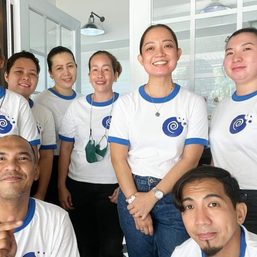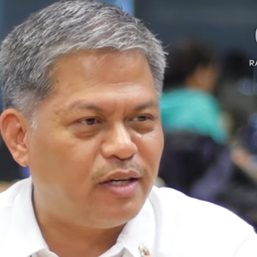SUMMARY
This is AI generated summarization, which may have errors. For context, always refer to the full article.
![[Good Business] Redefining success, guided by values](https://www.rappler.com/tachyon/2024/06/TL-Philippines-business-La-Salle-june-12-2024.jpg)
As we celebrate the Philippine Independence Day this week, it is an honor to launch the “Good Business” column, a collaboration between the PHINMA-DLSU Center for Business and Society (PDCBS) and Rappler. This partnership aims to provide a platform for thought leadership on how businesses can be forces for good in society.
The quest to define what constitutes a “good business” has been an ongoing journey. It has been primarily influenced by Western traditions emphasizing organizational efficiency, profits, and shareholder returns. Throughout the years, there have been discussions related to how business can do good, such as corporate philanthropy, corporate social responsibility, triple bottom-line, so on and so forth.
Unfortunately, this dominant discourse is silent on the local cultural context and would always surface the tension between profits and purpose. If we look deeper into the Filipino context, we realize that these traditional paradigms do not fully capture the essence of our cultural values and aspirations.
The Filipino experience is rooted in a strong sense of community, empathy, and a deep respect for human dignity (bayanihan, pakikipagkapwa-tao, and karangalan) – values that should be at the core of how we conduct business.
At the PDCBS public launch on March 8, 2024, attendees from various sectors challenged us to define “good” in the context of business. Their sentiments revolved around sustainability, ethics, governance, and social responsibility, highlighting the multifaceted nature of what constitutes a good business.
This call to action resonated deeply with us, as it echoed the very principles that PHINMA and De La Salle University stand for: being proudly Filipino, contributing to nation-building, and driving integral human development through cultivating a transcendent purpose guided by faith, zeal for service, and communion in mission.
As we define “good business,” we realized that we must be inclusive enough to embrace the diverse stakeholders we collaborate with, yet specific enough to differentiate our identity and allow for a strategizing process that is driven by authenticity. The answer, we believe, lies in the rich tapestry of Filipino values and culture. We can contribute to the discourse of decolonized or postcolonial views on business and management by emphasizing our Filipino values!
A good business, through the Filipino and Lasallian lenses, puts the “tao” (person) and “kapwa” (shared identity) at the forefront. It recognizes the inherent dignity and worth of every individual, fostering a sense of belongingness and shared responsibility. By continuously nurturing these values, a good business surfaces the “diwa” and the “animo” (spirit) that drive us to strengthen our faith, find meaning and zeal in service, and practice “bayanihan” as we pursue communion in mission.
We borrow insights from the rich discourse in the disciplines of Filipino philosophy and psychology, which recognize the human person as a holistic, relational being embedded in a complex cultural and social matrix. Concepts like “loob” (the authentic inner self), “kapwa,” and “bahala na” (courage and resilience in the face of uncertainty) underscore a distinctively Filipino way of being that must be considered in any truly contextualized approach to business.
Integrating these Filipino concepts into our understanding of good business leads us to principles that provide guidance for reflective practice at the individual, interpersonal, and communal/institutional levels.
At the individual level, business leaders are encouraged to cultivate attentiveness to their own “loob” – their deepest values, desires, and commitments. This self-awareness serves as the foundation for authentic leadership and decision-making.
At the interpersonal level, the framework emphasizes attentiveness to “kapwa” and the dynamics of relationships. It calls for treating others with profound respect, recognizing their inherent dignity and worth. This fosters a culture of empathy, collaboration, and mutual understanding within the organization.
Finally, at the communal/institutional level, the framework advocates for a critical analysis of prevailing power structures, cultural narratives, and systemic inequities, in light of Gospel values and Catholic social teaching. It challenges businesses to be agents of positive change, contributing to the common good and the integral development of society.
Ultimately, the Filipino Lasallian perspective on good business transcends mere financial success or shareholder value. It is a call to a conversion of heart and society, grounded in a deep sense of our shared dignity and interdependence as members of God’s family. It invites businesses to be catalysts for personal and communal transformation, fostering a more just, humane, and sustainable future for all.
As we continue this series, we invite business leaders, academics, and all stakeholders to join us in this conversation. Together, guided by our values, let us redefine success and chart a new path for business – one that upholds the inherent dignity of every person, promotes the common good, and contributes to the integral development of our society.
To my fellow Filipinos and our Lasallian partners, let us build businesses that are truly forces for good! – Rappler.com
Patrick Adriel “Patch” H. Aure, PhD, is the founding director of the PHINMA-DLSU Center for Business and Society and assistant dean for quality assurance of the DLSU Ramon V. del Rosario College of Business. He is also the president of the Philippine Academy of Management. Email him at patrick.aure@dlsu.edu.ph.
Add a comment
How does this make you feel?




![[Vantage Point] Why are more ‘frentrepreneurs’ betting on franchising?](https://www.rappler.com/tachyon/2022/10/Why-are-more-%E2%80%98Frentrepreneurs-betting-on-franchising.jpg?resize=257%2C257&crop=142px%2C0px%2C900px%2C900px)




There are no comments yet. Add your comment to start the conversation.